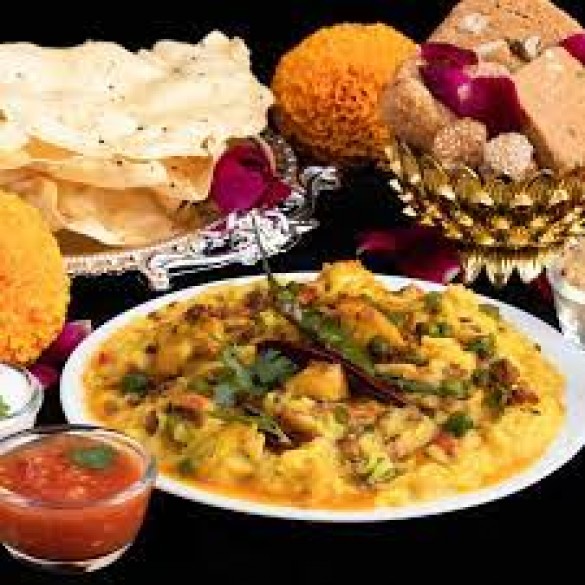
Makar Sankranti, the vibrant festival celebrated across India, holds a distinctive nickname – the Khichdi Festival. Let's unravel the intriguing origins of this unique moniker and delve into the cultural significance of Makar Sankranti.
Makar Sankranti, a festival that marks the transition of the sun into the zodiac sign of Capricorn, usually falls on January 14th. This auspicious day is celebrated with immense fervor and diverse traditions in different regions of India.
Makar Sankranti is not just about flying kites or enjoying sesame sweets. It is a celebration of diversity, with various states embracing their distinct customs and rituals. From Pongal in Tamil Nadu to Magh Bihu in Assam, the festival showcases India's rich cultural tapestry.
The term "Khichdi" is usually associated with a simple, wholesome dish made from rice and lentils. However, during Makar Sankranti, the significance of Khichdi transcends the culinary realm.
The tradition of preparing and consuming Khichdi on Makar Sankranti carries a profound symbolic meaning. Just as Khichdi is a blend of various ingredients, the festival emphasizes unity in diversity, bringing people together in a spirit of harmony.
To understand why Makar Sankranti is colloquially known as the Khichdi Festival, one must delve into ancient scriptures and cultural narratives. The festival's association with Khichdi is believed to have roots in historical practices and symbolic gestures.
Makar Sankranti holds immense spiritual significance, with the transition of the sun symbolizing a period of enlightenment and auspicious beginnings. The act of preparing Khichdi becomes a ritualistic expression of purity and simplicity.
While the core concept of Khichdi remains consistent, the preparation and ingredients vary across regions. From the savory "Pongal" in the South to the sweet "Tilgul" in Maharashtra, each version reflects the cultural diversity of India.
The Khichdi Festival isn't just about symbolism; it's a time to savor the diverse flavors of this humble dish. Families come together to prepare and enjoy Khichdi, fostering a sense of community and togetherness.
In addition to the culinary traditions, Makar Sankranti is synonymous with vibrant kite flying competitions. The skies come alive with colorful kites, symbolizing the victory of light over darkness.
Modern celebrations of Makar Sankranti go beyond individual households. Communities organize events, fairs, and cultural programs, fostering a sense of camaraderie among people of all ages.
Makar Sankranti, fondly known as the Khichdi Festival, transcends the boundaries of a mere culinary celebration. It's a time to reflect on unity, embrace diversity, and herald the arrival of auspicious moments. In the tapestry of India's festivals, Makar Sankranti stands out as a vibrant thread, weaving together traditions, symbolism, and the heartwarming aroma of Khichdi.
If you make friends with these cars then you will be benefited
This electric SUV disappears from sight in the blink of an eye
Citroen C3X Sedan: Citroen C3X crossover sedan seen during testing, new design details revealed